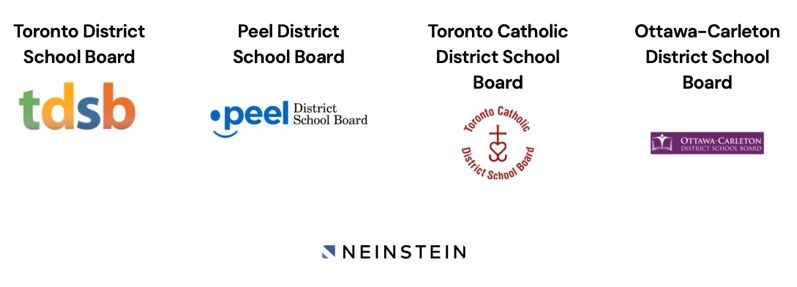
Ontario School Boards Suing Meta, SnapChat, TikTok for $4.5 Billion
 Four Ontario school boards—Toronto District School Board (TDSB), Peel District School Board (PDSB), Toronto Catholic District School Board (TCDSB), and Ottawa-Carleton District School Board (OCDSB)—have launched a lawsuit against Meta (owners of Facebook and Instagram), SnapChat, and TikTok.
Four Ontario school boards—Toronto District School Board (TDSB), Peel District School Board (PDSB), Toronto Catholic District School Board (TCDSB), and Ottawa-Carleton District School Board (OCDSB)—have launched a lawsuit against Meta (owners of Facebook and Instagram), SnapChat, and TikTok.
The lawsuit accuses these tech giants of designing social media platforms that are “disrupting student learning and the education system.” These apps were created for “compulsive use” and have “rewired the way children think, behave, and learn, leaving educators and schools to manage the fallout,” explains the Schools for Social Media Change Alliance, representing the school boards.
Social media use has put “massive strains on the four school boards’ finite resources, including additional needs for in-school mental health programming and personnel, increased IT costs, and additional administrative resources,” say the allegations. These four school boards are suing for $4.5 billion CAD, represented by Toronto litigation firm Neinstein LLP.
“The influence of social media on today’s youth at school cannot be denied. It leads to pervasive problems such as distraction, social withdrawal, cyberbullying, a rapid escalation of aggression, and mental health challenges,” said Colleen Russell-Rawlins, Director of Education, Toronto District School Board.
“Urgent action is needed to protect students from further harm. That is why we have come together in bringing action against social media giants to make their products safer while addressing the disruptions they are causing to our educational mandate,” said Rashmi Swarup, Director of Education, Peel District School Board.
Feels like a Canadian class action copycat lawsuit given that hundreds of school boards in the U.S. have filed similar suits. None successful so far.https://t.co/ht2LY7Mg5Nhttps://t.co/hA4m5hRowN
— Michael Geist (@mgeist) March 28, 2024
Brendan Browne, Director of Education, Toronto Catholic District School Board, added, “In the absence of effective measures from the architects of these digital platforms, our educators find themselves increasingly involved in mitigating social media-induced matters, diverting precious time away from academic instruction.”
“The crisis caused by social media giants is putting children and youths at risk. Our students, society’s next generation of leaders, deserve better,” said Pino Buffone, Director of Education, Ottawa-Carleton District School Board.
In response, Snapchat told the Toronto Star, its app “was intentionally designed to be different from traditional social media, with a focus on helping Snapchatters communicate with their close friends. Snapchat opens directly to a camera — rather than a feed of content — and has no traditional public likes or comments.”
There’s no doubt that these social media apps are made to be highly addictive. Students need to be educated by their teachers and parents about how these apps are addictive and teach them how to set limits, because outright banning is just not the answer. As Michael Geist points out, this looks to be copying similar lawsuits from school boards in the U.S., which none have been successful so far.
